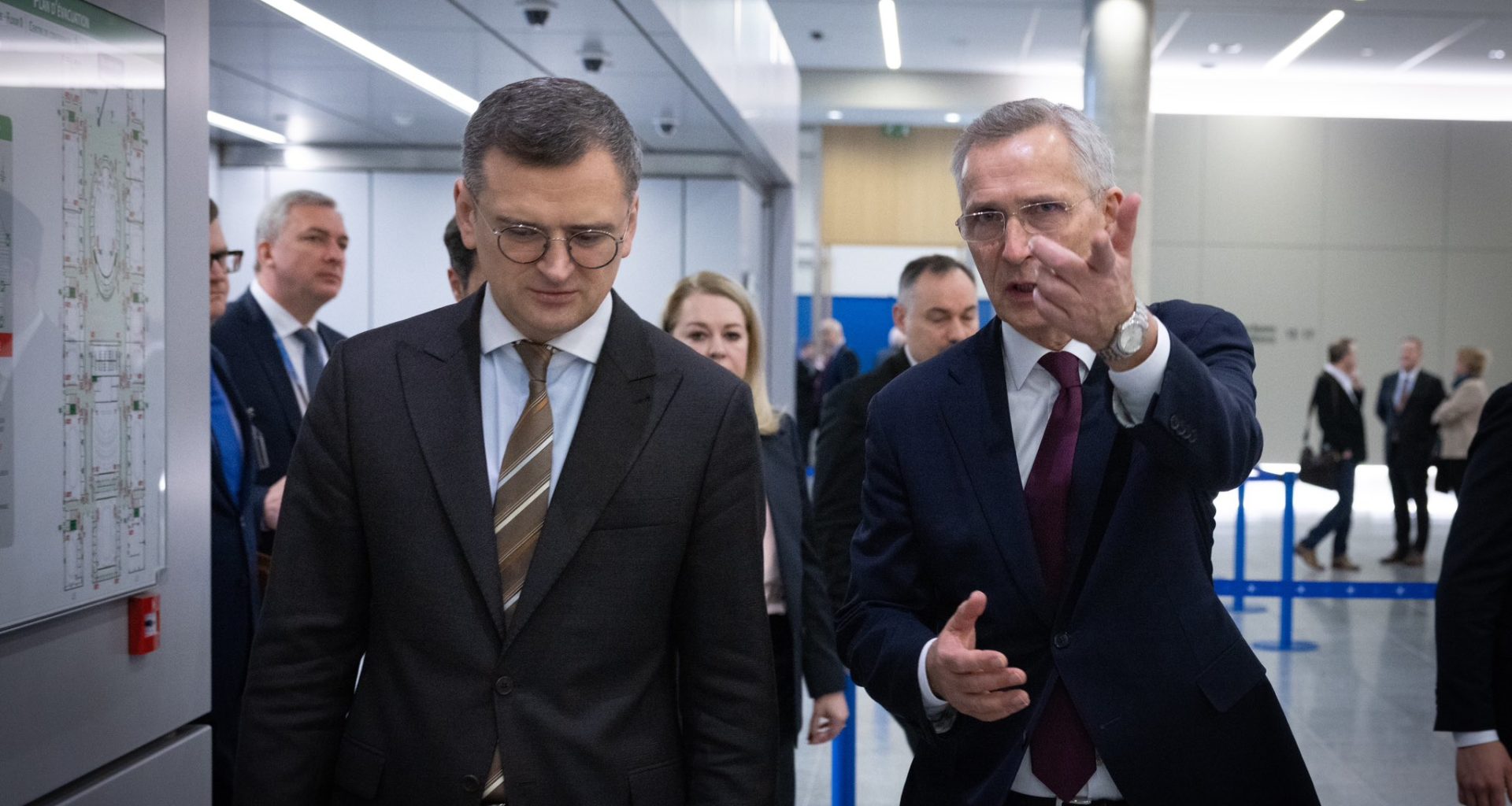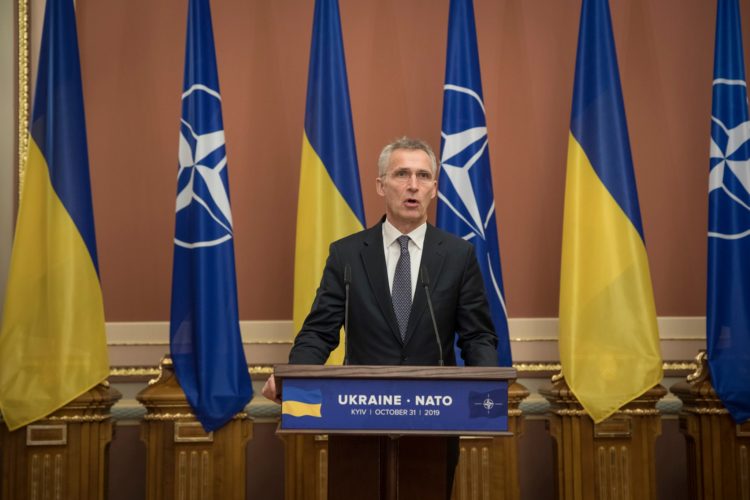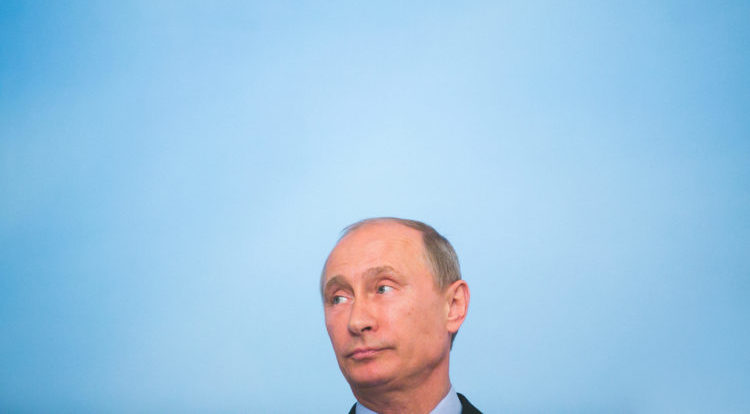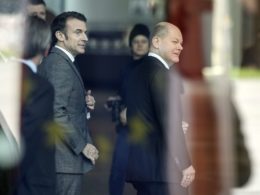The Alliance and the member states have made several strategic mistakes since the end of the Cold War.
- The first was to take peace for granted. Most member states stopped investing in security and defense.
- The second was not to take President Putin’s speech at the Munich Security Conference and his subsequent actions seriously.
- The third was not offering Ukraine and Georgia Membership Action Plan status in 2008.
- Its failure to respond firmly to Russia’s many provocations and transgressions of international law was the fourth mistake.
- To not help Ukraine re-establish deterrence in 2014 was the fifth error.
- The sixth – and possibly the biggest blunder of them all – was not to start rebuilding their own security and defense sectors when the war started in 2014.
- The seventh mistake was to step back from its 2010 strategic concept ambition to use both military and political tools to end a war that threatened the security of the Alliance. Instead of acting resolutely, NATO decided to provide non-military support only.
NATO is about to make its eighth strategic blunder. It will not invite Ukraine to join the Alliance during the Washington Summit on 9-11 July 2024. Instead of ensuring peace in the transatlantic area, the Alliance will inevitably ensure the continuation of war in Europe. This will have global repercussions.
Why Ukraine will not be invited
Both the Alliance and the NATO members have made it abundantly clear that Ukraine will not be invited to join while at war. NATO leaders will not discuss Ukraine’s membership or the accession timetables during the Washington Summit. Even Ukraine has realized that there is no hope for an invitation.
Some of the opposition against Ukrainian accession is founded in the principles laid down in the Study on NATO Enlargement from 1995. A country cannot become a NATO member while at war. “States which have ethnic disputes or external territorial disputes […] must settle those disputes by peaceful means in accordance with OSCE principles. Resolution of such disputes would be a factor in determining whether to invite a state to join the Alliance.”
NATO members do not want to “provoke” Russia out of fear that the war would escalate into an open confrontation between Russia and NATO. Because of Russian statements – all a part of its reflexive control tactics – the West is left unsure as to how Russia would respond and fearing everything from an escalation of the war to a World War 3 and a nuclear confrontation.
The Alliance is concerned that a Ukrainian membership while it is at war would trigger Article 5 (collective defense), making it a part of the war.
Some members also believe that NATO membership is not required. President Biden recently stressed that "Peace looks like making sure Russia never, never, never, never occupies Ukraine. That's what peace looks like. And it doesn't mean NATO, they are part of NATO, it means we have a relationship with them like we do with other countries, where we supply weapons so they can defend themselves in the future."
He was likely once again referring to the “Israel model” in which the West, led by the US, arms Ukraine to the teeth, providing it “the ability to counter and defeat any credible conventional military threat from any individual state or possible coalition of states or from non-state actors.”
Others argue that Ukraine is not ready to join NATO and needs further reforms. To join the Alliance, nations are expected to respect the values of the North Atlantic Treaty and to “meet certain political, economic and military criteria, set out in the Alliance’s 1995 Study on Enlargement.
These criteria include:
- a functioning democratic political system based on a market economy;
- fair treatment of minority populations;
- a commitment to resolve conflicts peacefully;
- an ability and willingness to make a military contribution to NATO operations;
- and a commitment to democratic civil-military relations and institutions.
At the 2023 Vilnius Summit, they decided that Ukraine’s path to full Euro-Atlantic integration has moved beyond the need for the Membership Action Plan. NATO is, however, reviewing Ukraine’s progress on interoperability as well as additional democratic and security sector reforms that are required on its path towards future membership.
To gain NATO membership, Ukraine must convince many partners that their fear of Russian escalation is a reflexive control operation
A Ukrainian NATO membership must be agreed upon by all 32 member states. The decision must be unanimous. During the NATO summit in Bucharest in 2008, the Membership Action Plan was derailed after strong opposition from Germany, France, Italy, Spain, the Netherlands, and Belgium. After more than 10 years of a war which, ultimately, was enabled by the 2008 Bucharest decision, several countries, including the US, Germany, Hungary, and Slovakia are still opposing membership. Despite statements to the contrary, Russia’s veto is still proving decisive.
The last hurdle to pass is also the most difficult one. Ukraine must successfully convince many of its partner nations that they are victims of Russian reflexive control and that their threat perception and fears are a consequence of lies, deceit, and manipulation.
Why Ukraine should be invited
1. Ukrainian membership is the only means available short of military intervention that would end the war.
The West would fundamentally change the military balance by offering Russia NATO membership and, thereby, collective protection. This would force Russia to reassess its strategic situation and consider the two only alternatives open to it: to continue its war of aggression against 33 NATO member states in a theatre that extends from the Black Sea in the south to the Arctic in the north or withdraw and live to fight another day.
Based on Russia’s tremendous efforts over more than 10 years to stop the West from becoming an active part in the war as a prerequisite for winning the war and acknowledging its present military challenges facing only Ukraine – a country with several critical military vulnerabilities – Russia will choose to de-escalate and withdraw. It would be the only strategically sound decision.
Withdrawing in the face of NATO military power is probably also the only acceptable off-ramp for Putin. He will never accept defeat by a country that, in his distorted mind, “does not exist.”
2. Nothing but a Ukrainian NATO membership can ensure a lasting peace.
It will be Ukraine’s ultimate security guarantee and the only solution to ensure a lasting peace. There is no substitute.
The “Israel model” will not work. The model does not fit the strategic environment in Europe. In contrast to Ukraine, Israel is facing a threat from militarily inferior countries. Ukraine is fighting a nuclear power while Israel is one. The notion that Ukraine might achieve a “qualitative military edge” in the region is utterly unrealistic. It will never be able to source the Armed Forces needed to deter future aggressions on its own. Russia’s resource base is massive and can mobilize resources far beyond Ukraine’s abilities. More importantly, the US will never allow Ukraine nuclear weapons, the only means capable of deterring Russia.
3. It will help reduce the European “grey zones” – neutral or non-aligned countries vulnerable to Russian aggression.
There seems to be a consensus that the wars in Georgia and Ukraine would never have happened if the countries had been offered membership in 2008. Russia is only waging war against countries it deems weak and militarily inferior and has, until now, avoided a direct military confrontation with NATO.
Finnish and Swedish NATO accession helped reduce the number of “grey zone” countries. A future accession of Ukraine, Georgia, and Moldova will help establish a clear frontline between democracy and autocracy, greatly reducing the risk of strategic misunderstandings, conflicts, and wars.
Western lack of response to Russian transgressions of international law until 24 February 2024 created the basis for Russia’s strategic blunder: The full-scale war.
4. A Ukrainian NATO accession is equal to a Russian defeat.
It puts an effective end to its imperialistic ambitions and Great Power aspirations. We need to acknowledge that Russia will never accept being defeated by Ukraine. Even if the West provides Ukraine with the tools it needs to defend itself, Russia will never accept being defeated by a nation that – in its distorted narrative – “does not exist.”
Russia is fighting an existential war. With Ukraine, it is an empire. Without it, it might eventually collapse. It will not and cannot stop its war of aggression unless its continuation will lead to its imminent implosion and collapse.
It will only accept withdrawal from Ukraine if the alternative were to fight a far superior military power and, thereby, risk losing the means that secure the survival of the regime and the state.
Only two options —military intervention or Ukrainian membership in the Alliance—will ensure a Russian defeat.
5. Ukrainian NATO membership will resolve the broader confrontation.
While Western politicians have consistently portrayed the war as a “Russia-Ukraine war,” it was always a confrontation between Russia and NATO. This is reflected in its strategic documents, stated aims and objectives, threat perception, public statements and rhetoric, ultimatums, and nuclear threats.
Strategic documents, stated aims, public rhetoric, ultimatums, and nuclear threats indicate that Russia's war is a confrontation with NATO
It is not least reflected in its aggression across the US and the EU, including but not limited to acts of terrorism; sabotage operations in Europe, including attacks against ammunition depots in the Czech Republic and Bulgaria; arson; possible involvement in several railway derailments; likely attacks on underwater cables and pipelines; high-level assassinations; nonlethal energy or acoustic attacks against US personnel; jamming of commercial navigation signals; cyber-attacks; attempts to redraw maritime borders; influence operations; interference in elections and referendums; attack profiles flights against NATO countries; and violations of their sea and air space. Russia has been waging this hybrid campaign to destabilize NATO for the past decade.
An Alliance weakened after three decades of lack of investment in security and defence; downsizing and streamlining – and a defence industrial base lacking the capacity to ramp up its production according to the present needs – urgently needs strengthening.
A Ukrainian NATO membership will strengthen the Alliance. Ukraine has presently the most battle-hardened army in the world, leading the technological development in the most high-intensity war since WW2. Its population has demonstrated higher resilience and greater democratic awareness than most NATO member states. Ukraine is, not least, strengthening institutions where some NATO members are undermining and weakening theirs.
6. Ukrainian membership will help restore NATO deterrence and, consequently, prevent future conflicts and wars.
A decision to invite Ukraine into the Alliance will mark a shift in strategy, an increase in military power and a demonstration of resolve. Having both strengthened the Alliance and re-established European security – acknowledging that there can be no security in Europe without a democratic, independent, sovereign, and complete Ukraine – the US and NATO can refocus their attention elsewhere.
Having proven that democracy will prevail, other potential aggressors will take notice.
7. It would ensure a far greater efficiency of the military forces available.
Instead of slow and incremental defence support leaving Ukraine constantly short of both weapons and ammunition as well as critical capability gaps (e.g., combat aircraft, air defence, long-range strike, and a Navy), a Ukrainian membership would enable the use of the Alliance’s complete toolkit.
If NATO were to help Ukraine liberate occupied territories, an offensive would be conducted without the many obvious deficiencies of 2023. The Alliance would put its joint capabilities, including a superior Air Force and Navy in action, supporting the strongest and most battle-hardened Army in the world.
This is one of the key reasons Russia would choose to withdraw from the battlefield. It would be facing the superior military power of 33 NATO countries instead of fighting Ukraine only. It would risk a military defeat, undermining the survivability of the regime and Russia itself.
8. It would help establish a European strategic autonomy within NATO.
The US has been pivoting towards the Pacific for years and is turning increasingly more isolationist. While the NATO commitment prevails, it rightfully expects Europe to take greater responsibility for its security. After three decades of neglecting security and defence, however, the European member states will not be in the position to resume the responsibility for years to come.
Only 11 out of 32 NATO members met the 2% of Gross Domestic Product (GDP) defense budget target last summer. Fifteen members have never met the target since 2006. Twenty-five members have a “backlog” of 10 or more years during which they did not fulfill the 2% pledge. The Euro-Atlantic defense industrial base is by no means scaled to ramp up production to meet the urgent needs for defense output.
A Ukrainian NATO membership would completely change the situation. With more than one million men and women under arms, a vibrant, state-of-the-art defense industry, and a population of around 32 million, Ukraine would strengthen European security.
Europe – with or without the US – would be able to deter future Russian aggression.
9. It would help avoid the consequences of not accepting Ukraine as a NATO member.
Keeping Ukraine at arm’s length comes at a very high price.
The risk of Ukraine being defeated is but one. As outlined in the report “Why the West cannot let Russia win,” the war is existential. Either Ukraine or Russia will be defeated. The defeat of Ukraine is an essential objective in Russia’s broader confrontation with the West. It would allow Russia to become a great power once more.
Already the world’s largest nuclear power, it would gain the economy, additional energy and commodities, technology, and human resources needed to achieve strategic parity with the US and China. This would allow Russia to escalate its ongoing confrontation with the US and Europe. The potential consequences are far-reaching.
In a “Russia-Ukraine war” scenario, membership becomes highly toxic. In a broader confrontation, it becomes a part of the solution.
It would also mean that Russia will maintain its control over the cognitive space and continue to shape the opinions and fears in the West.
Failure to accept the realities – the broader confrontation – leaves the West increasingly vulnerable to Russian reflexive control tactics. The full scale of its aggressions will remain disconnected from public discord. The question about Ukraine’s future membership is a part of this.
In a “Russia-Ukraine war” scenario, membership becomes highly toxic. In a broader confrontation, it becomes a part of the solution.
The “tsunami of ripple effects” from the war would continue to shape the Western political landscape, allowing the rise of right-wing political power across Europe (as already witnessed during the recent European Union’s parliamentary elections). This will weaken international cooperation and institutions and increase our vulnerability to Russian malicious influence. Ending the war would also end its far-reaching consequences.
In the words of Ronald Reagan: “Democracy is worth dying for.” Failure to stop and defeat Russia means that democracy, international law, and security architecture have lost their champions. Accepting Ukraine as a NATO member is all about taking a stand against tyranny in favor of democracy and a rule-based world order.
If NATO is unwilling to defend these values and principles but instead seeks compromise, autocracies elsewhere will see military power as a preferred means to achieve their end.
The way forward
Many of the arguments against Ukrainian membership are predominantly a consequence of Russian battlefield success in the cognitive domain.
Having been influenced by disinformation, public opinions, and Russian-induced fears, many are making decisions that primarily serve Russian interests. Some of the NATO members are openly pro-Russian. Others have been motivated to put national interests before the common good.
It is alleged that a country cannot become a NATO member while at war. The member states introduced the prerequisite and can, therefore, remove it.
The fear that the war would escalate into an open confrontation between Russia and NATO does not reflect the strategic realities. It already is a confrontation. Russia has waged a hybrid war against the West for decades. Russia has escalated the war irrespective of NATO’s attempts to deter escalation. More importantly, both the West and Ukraine have repeatedly crossed Putin’s so-called “red lines” without triggering the worst-case scenario it constantly projects.
The concern that a Ukrainian membership while it is at war would trigger Article 5 (collective defense), is not fully unfounded. It is, however, based on the assumption that Russia would prefer to stay and fight a far superior military power over Ukraine than to withdraw. That would be strategically unsmart. The key is to provide Russia with sufficient time to withdraw its forces before Ukraine becomes a member state.
Some members argue that NATO membership is not required. That’s false. There is no substitute for NATO membership. The so-called “Israeli model” would not work.
The argument that Ukraine is not ready to join NATO and needs further reforms is nothing but a deflection. NATO is first and foremost a defensive, military Alliance. While Ukraine has institutional flaws, in contrast to many member states, it brings real military power to the table. The fact that several of the present member states are “in bed with the enemy” and suffer democratic shortcomings demonstrates that NATO is willing to look the other way when required.
To overcome the resistance from the member states that insist on repeating the blunder from 2008, Ukraine must successfully convince many of its partner nations that they are victims of Russian reflexive control and that their threat perception and fears are a consequence of lies, deceit, and manipulation.
Keeping Ukraine at arm’s length and non-aligned does not serve Europe and the USA. It only serves Russia as it ensures that Ukraine remains vulnerable and, thereby, keeps its Great Power ambitions alive.
A Ukrainian NATO membership equals a Russian defeat. It helps remove the European grey zones vulnerable to Russian aggression. It helps establish a clear frontline between democracy and autocracy, removing the risk of strategic miscalculations. It removes ambiguity.
The member states must face up to a crucial decision. A NATO membership will help end the war, stop the broader confrontation, re-establish NATO credibility and deterrence, help establish a lasting peace, and, not least, help establish European strategic autonomy.
Denying Ukraine membership will, in contrast, fuel the war.
Denying Ukraine NATO membership will fuel Russia's war.
Russia will adjust the intensity of the war as required to ensure that Ukraine will never experience peace and, consequently, never become a NATO member. Bearing in mind Western “lack-of-focus-disorder,” a protracted war increases the risk of a Ukrainian defeat. Both a continuation of the war and a potential Ukrainian defeat carry tremendous risks and costs for Europe and the US.
NATO member states have a small window of opportunity to decide. Russia has ramped up the output from its defense industry and continues to generate new Ground Forces. NATO has a window of two to three years to prepare before Russia has reconstituted its forces and will be in a position to attack the Alliance.
It is facing the stark choice of defeating Russia alongside Ukraine or attempting to deter a victorious and aggressive Russian Great Power at its border alone. In the worst-case scenario – a Russian victory in Ukraine - parts of the Ukrainian Armed Forces will be absorbed by the victor, turning the Russian Armed Forces into the world’s largest and most battle-hardened ground force.
NATO must choose to “put out the fire” alongside Ukraine instead of waiting until it reaches NATO territory, being forced to fight the “fire” alone.
A Ukrainian NATO membership in 2024 is in NATO’s interest because it equates to a Russian defeat.
Editor's note. The opinions expressed in our Opinion section belong to their authors. Euromaidan Press' editorial team may or may not share them.
Submit an opinion to Euromaidan Press
Related:





